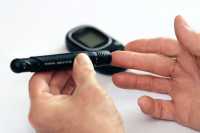Author Interviews, Diabetes, Sleep Disorders, Weight Research / 26.09.2022
Night Owls May Have Increased Risk of Obesity, Diabetes and Heart Disease
MedicalResearch.com Interview with:
Steven K. Malin, PhD, FACSM (he/him)
Associate Professor
Department of Kinesiology and Health | School of Arts and Sciences
Division of Endocrinology, Metabolism and Nutrition | Robert Wood Johnson Medical School
Institute of Translational Medicine and Science
New Brunswick, NJ 08901
MedicalResearch.com: What is the background for this study?
Response: Type 2 diabetes is a condition where blood glucose (sugar) is elevated in the blood. This can be problematic as it leads to blood vessel damage and the promotion of cardiovascular disease. Nearly 30 million people in the U.S. have type 2 diabetes, making it a major public health issue. The cause is not entirely clear, but many, including our team view insulin resistance as a central culprit.
Insulin resistance is when the body does not respond well to the hormone insulin. Insulin is vital because it promotes glucose uptake into tissues, like skeletal muscle. Two reasons that are often used to explain the development of insulin resistance include: poor diet (e.g. high sugar and/or high fat coupled with excess calories) and a lack of physical activity. However, more recently, a lack of sleep has been raised as another critical behavioral factor contributing to insulin resistance. Thus, targeting a healthy diet, activity and sleep pattern is thought to prevent the transition from health to insulin resistance and type 2 diabetes.
(more…)





























